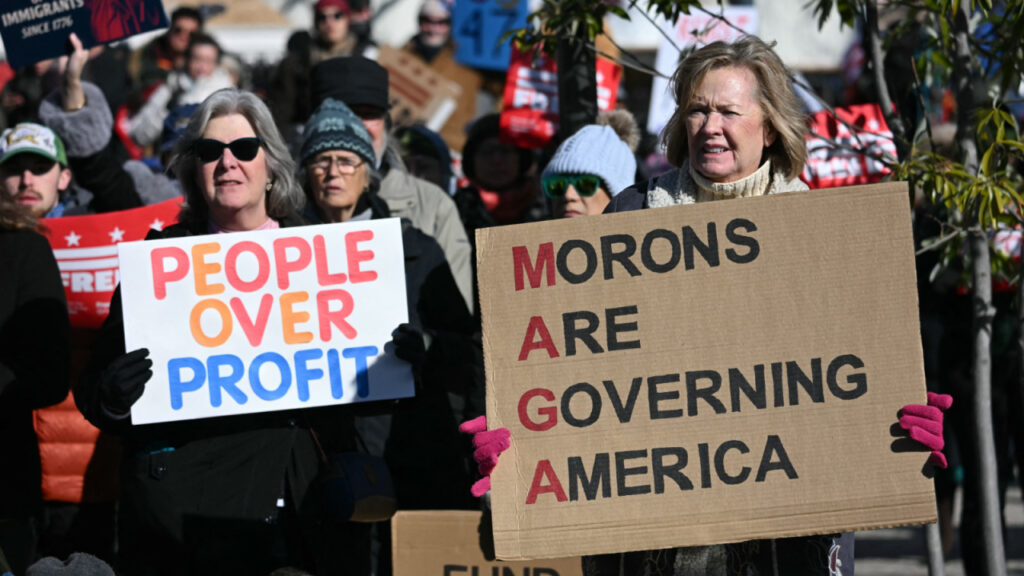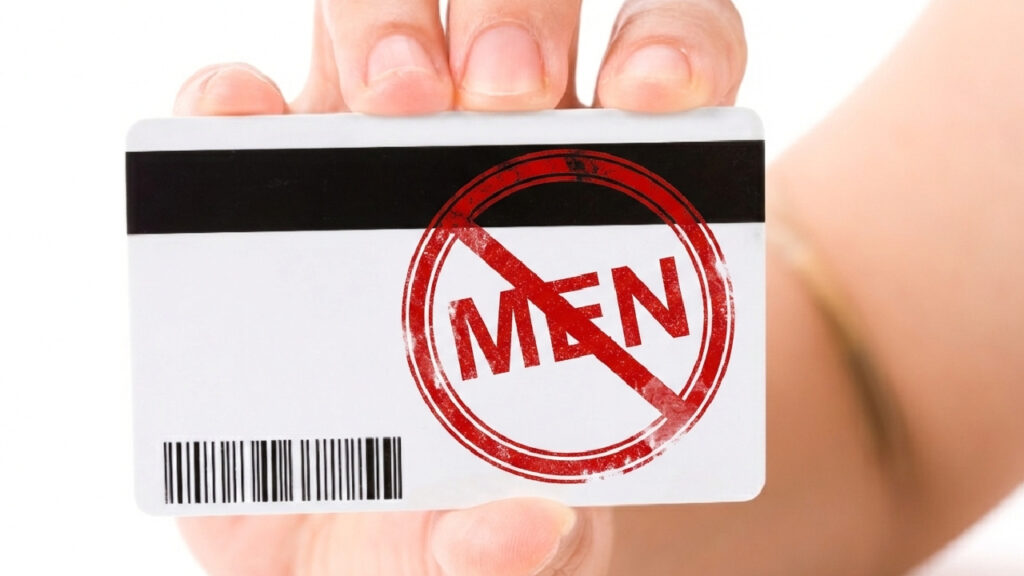
Op-Ed: Being a Mom in America Sucks — Here’s Why
As a mother of three — a five-year-old and seven-month-old twins — I’ve experienced firsthand how being a mom in America is riddled with impossible expectations and little support.
In the United States, the idea is that they are your kids and, therefore, your problem. However, various studies have shown that paid parental leave positively contributes to economic performance. For example, paid leave policies enhance labor force participation among mothers in the years following childbirth, which bolsters economic stability and growth.
By highlighting the realities parents face, I hope to shed light on the urgent need for better parental support policies in the USA. I also hope to encourage more mothers to share their stories and to push for change.
Being a Mom Sounds Like a Dream—Until You Hit Postpartum
My disclaimer is that I love my kids. I love being a mother, but it is not for the weak. It is a lot of work. Plus, the media does a great job of idealizing postpartum life. They make it look like all you do is cuddle and sing to your baby. They make it look like bliss. And while it is full of joy, it is also exhausting.
The media doesn’t show a mom with huge bags under her eyes because for the first 3-6 months, you are up every two hours feeding and taking care of the baby. Why? Because their tiny tummies cannot eat a lot in one sitting, but they are growing exponentially, so they eat 10-12 times a day. Picture it, you are feeding a baby every two hours. And in my case, I was feeding two babies every two hours and changing 30 diapers a day. I had little time to sleep, eat, shower, clean the house, or do anything.
I was sleep-deprived and emotionally drained.
There is a reason why sleep deprivation is used as a form of torture. And in the postpartum stage, while we’re trying to physically recover from a vaginal birth or c-section operation, we also have to care for an infant or two or more.
I was a tired mom covered in pee, poop, and/or throw up. Therefore, I also smelled.
I remember how excited I would get when I had an extra pair of hands and could finally shower. I would also try to control my bladder and use the bathroom while the twins were sleeping. But for those times I could not, I had two swings by the bathroom door to watch them while I handled my business.
I was so tired that all I wanted to do was cry, but I was too tired and dehydrated to produce tears. Now that you have this image in mind, add the financial stress of unpaid parental leave. My story reflects a larger crisis in America—one that demands urgent change.
How can we expect women to raise the next generation when the system is designed to make motherhood unsustainable?
Then, There’s The Paid Parental Leave Debacle
When my twins were born, I took two months’ unpaid leave from work. I worked for a small nonprofit that did not have the resources to offer me paid leave. Because of this, I had to save every penny I received from work and my side hustles as a children’s book author and freelance writer. I worked every day until my water broke at 6 a.m. I emailed my bosses, letting them know I was going into the operating room and would need to resume my unpaid leave.
But the sad truth is that it doesn’t have to be this way.
As taxpayers, this is a benefit parents should have. After all, 96% of 193 countries globally have implemented some form of paid leave for new mothers, according to Heymann and McNeill’s (2022) review of data from the World Policy Analysis Centre Adult Labour Database. Notably, the United States remains one of only seven countries—and the sole high-income nation—without a national paid leave policy for new parents.
Almost all European Union countries guarantee at least 14 weeks (3 months) of paid maternity leave, with at least two weeks of compulsory leave before and/or after childbirth. During this time, workers typically earn at least two-thirds of their usual income, with some earning up to 100% of their income, depending on the country.
Interestingly, many EU member states offer more generous maternity leave policies that exceed the 14-week minimum requirement. For instance, several countries provide over 30 weeks of paid maternity leave, with some nations also offering additional parental leave and flexible work arrangements to support families. Additionally, 63% of countries provide paid leave to fathers, reflecting a growing recognition of the importance of paternal involvement in early child-rearing.
Why is Paid Parental Leave Important, You Ask?
First, paid parental leave supports family stability and well-being. It allows parents critical time to bond with their newborns, adjust to new routines, and recover from childbirth without the stress of lost income. It has also been shown to improve maternal mental health by reducing postpartum depression, especially when leave is adequately compensated and of sufficient duration.
Second, babies benefit enormously from paid parental leave. Studies show that when parents are home during the early months, children are more likely to receive timely medical care. Paid leave is also linked to lower infant mortality rates and improved long-term health outcomes.
And last but not least, from an economic standpoint, paid parental leave increases labor force attachment, particularly among women. Countries and states with paid leave policies often see higher worker retention, reduced turnover costs, and greater workforce participation, especially from mothers. Importantly, studies also show that these policies have no negative impact on employer profitability and can increase productivity and morale.
So, What Can We Do To Make Being a Mom in America Suck Less?
Pushing for policies that ensure paid parental leave requires coordinated efforts across communities, workplaces, and government. We need to come together on this. And maybe this roadmap can help:
Hold your local, state, and federal elected officials accountable.
Does your elected official support passing legislation that would give way to paid parental leave? If not, call them and tell them why they should care. If that doesn’t work, it’s time to vote them out and vote for someone who actually cares about families.
Contact your elected officials and urge them to support legislation like the FAMILY Act (Family and Medical Insurance Leave Act), which would create a national paid leave program.
Also, push for state-level policies where federal progress stalls—several states like California, New York, and New Jersey already have paid leave laws.
You can also advocate for expanded Child Care and Development Block Grants (CCDBG) and universal pre-K initiatives at the state level.
Finally, support candidates and ballot measures that prioritize economic justice, child welfare, and gender equity. Ask about their stance on paid leave during debates or town halls.
Organize and Mobilize Communities
Build or join coalitions with parent advocacy groups, early childhood educators, labor unions, and nonprofits focused on family well-being (for example, PL+US, MomsRising, or the National Women’s Law Center).
Share your personal stories about how the lack of paid leave has affected your family—storytelling moves public opinion and policymakers’ priorities.
Engage Employers and Institutions
Encourage employers to adopt family-friendly policies voluntarily. Highlight the business case: paid leave increases employee retention and satisfaction.
Use Your Voice in Media and Culture
Write op-eds, post on social media, and contribute to campaigns that normalize paid parental leave as essential infrastructure, not personal luxuries.
And support and amplify artists, storytellers, and educators who show what’s possible when families are supported.
In truth, change takes time. By the time any of these changes are actually implemented, I will not be a beneficiary of any of them. However, for us to thrive as a country, we need to think about the needs of others. I won’t benefit from paid parental leave, but future mothers will. Perhaps even my daughters will benefit from these investments. In sum, we all benefit when society invests in its people and their needs.
Alyssa Reynoso-Morris is a queer Afro-Latine/x Dominican and Puerto Rican award-winning storyteller, author, and motivational speaker. She is also a mother and community organizer. During the day, she works with community members, non-profit organizations, and government officials to make the world a better place. Then she puts on her writer’s hat to craft heartfelt stories. Alyssa was born and raised in The Bronx, New York, and currently lives in Philadelphia, PA, with her family. She is the author of Plátanos Are Love & Los plátanos son amor (a NCTE Charlotte Huck Recommended Read); The Bronx Is My Home; Gloriana Presente: A First Day of School Book & Gloriana Presente: De la República Dominicana al Bronx; Bold, Brilliant and Latine: Meet 52 Latine and Hispanic Heroes from Past and Present; and Pieces of Home. She hopes you enjoy her stories. You can learn more about her at alyssaauthor.com




